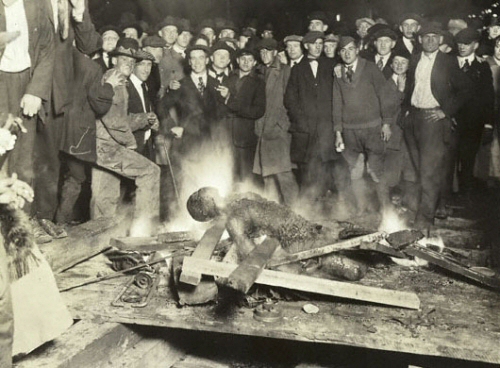|
|

This infamous incident was part of the wave of
racial and labor violence that swept the U.S. during the “Red
Summer” of 1919. As in the nation at large, it was a turning
point in the history of Omaha’s black community. Following a
national pattern, the local daily newspaper carried lurid,
sensational accounts of attacks by African American males on
white women, without similar coverage of assaults on African
American women, by either black or white males. After one
particularly provocative story in September of 1919, Will Brown,
an African American man, was arrested and held in the Douglas
County Courthouse. Largely due to the newspaper story, a mob
gathered. Omaha Mayor Edward P. Smith was nearly lynched
himself when he unsuccessfully attempted to disperse the crowd.
Then the mob broke into the recently constructed building,
tearing off Brown’s clothing as he was being dragged out. He
was hanged on a nearby lamppost and then his body was riddled
with bullets. Finally the body was burned. Members of the mob
tied what remained of his charred body to an automobile, and
dragged it around the streets of downtown Omaha. Pieces of the
rope used to lynch Brown were sold as souvenirs for 10 cents
apiece.

Although some of the leaders of the lynching
were placed on trial, most received suspended sentences, or were
convicted of minor offenses such as destruction of public
property. Some of the causes of the “Courthouse Lynching of
1919” were linked to Omaha city politics. The mayor, who was a
recently-elected reformer, was at odds with the
machine-controlled police department, whose members were
conspicuously absent during the height of the riot. One of the
thousands of witnesses to the lynching was a young man named
Henry Fonda, who later remembered, “It was the most horrendous
sight I’d ever seen…My hands were wet and there were tears in my
eyes. All I could think of was that young black man dangling at
the end of a rope.”
|